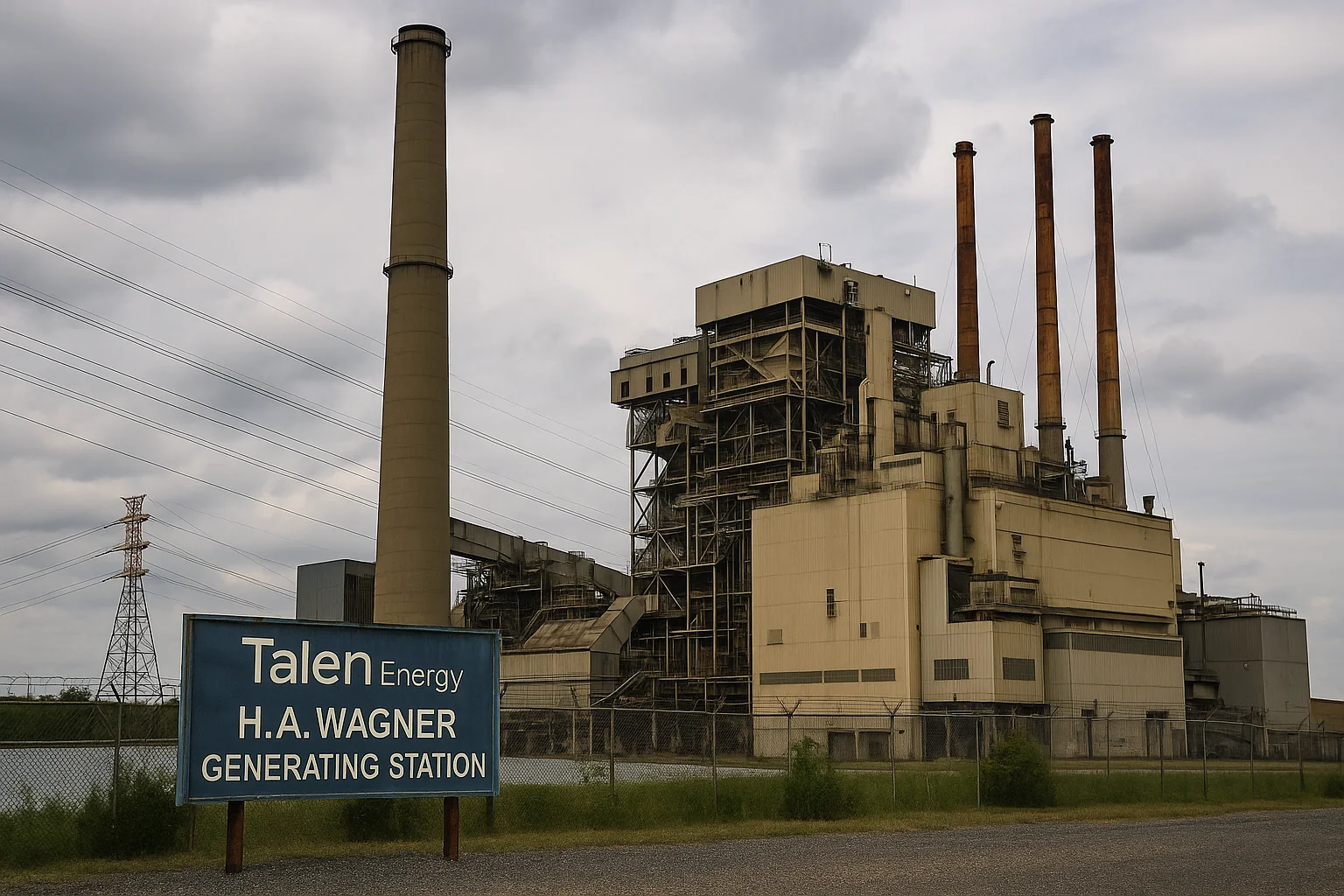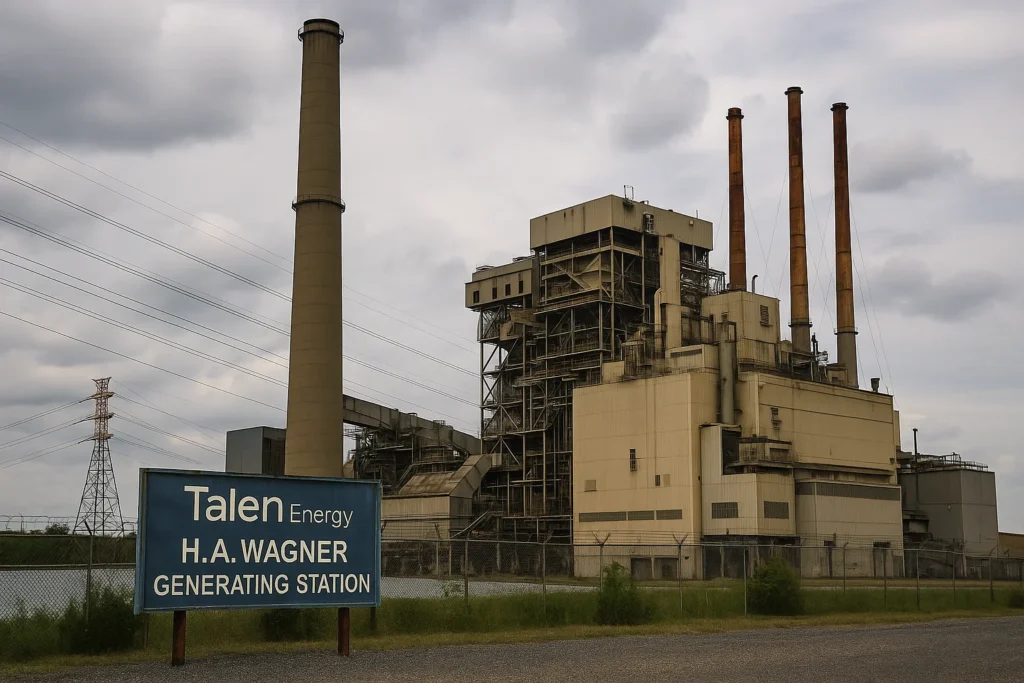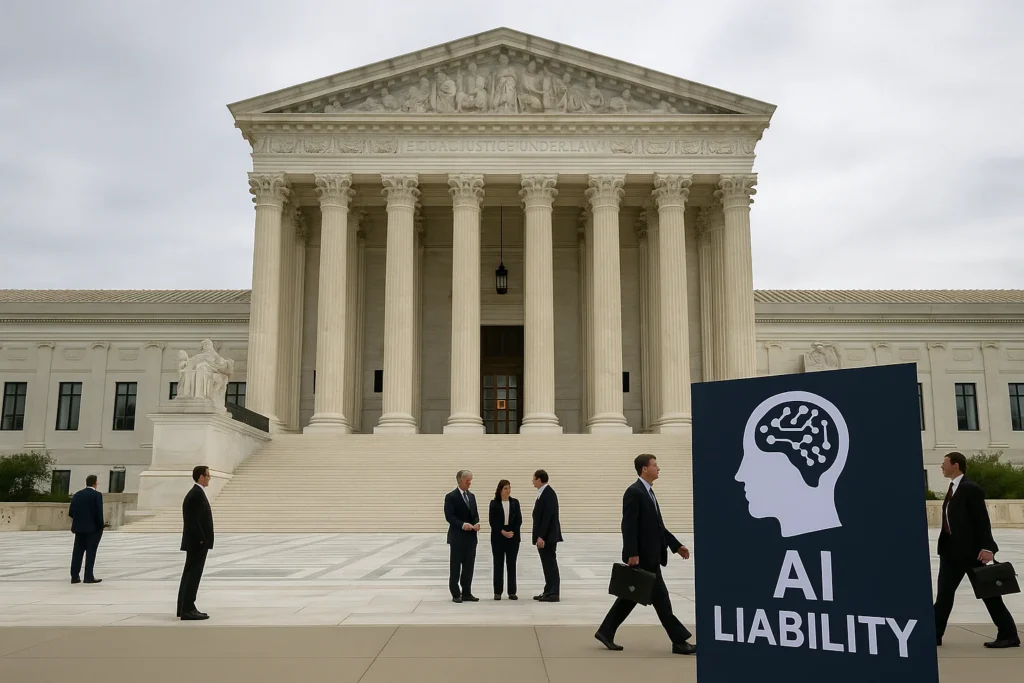Introduction
The U.S. government’s decision to extend operational limits for Talen Energy’s Wagner power plant in Maryland is more than a technical waiver—it’s a political statement. This emergency order, stretching through the end of 2025, places grid reliability above environmental law. The case reveals a deeper struggle between short-term energy security and the long-term imperative to decarbonize. The focus keyphrase, US Government order on Talen Power Plant, captures the crossroads of law, policy, and fossil-fuel pragmatism shaping America’s energy future.
Context: Official Narrative of Energy Necessity
Energy Secretary Chris Wright’s October 24 order allows part of the Wagner oil-fired plant to exceed environmental limits for an additional two months. According to the Department of Energy (DOE), PJM Interconnection—operator of the largest U.S. power grid—warned of a “resource adequacy concern” that risked blackouts during peak winter demand. The order invokes Section 202(c) of the Federal Power Act, a rarely used clause permitting emergency operations that override environmental restrictions.
The Wagner facility, near Baltimore, was scheduled for retirement in mid-2025. Instead, federal regulators extended its life to 2029 and now permit hourly run-time excesses for a 400-megawatt unit. PJM argued that AI-driven data centers, EV adoption, and electrified heating have sharply increased demand. Officials insist that without this temporary waiver, millions across 13 states might face power instability.
In the administration’s framing, this is responsible crisis management. President Trump’s “energy emergency” declaration in January 2025 provided legal cover for such interventions, positioning fossil reliability as a matter of national defense.
Oppositional Argument: Environmental Law Undermined
Yet this emergency appears engineered rather than accidental. The US Government order on Talen Power Plant sidesteps Maryland’s environmental statutes and the Clean Air Act’s safeguards. These laws restrict operation hours to prevent excessive nitrogen oxide and sulfur dioxide emissions—pollutants that choke Baltimore’s air basin, already designated a non-attainment zone under federal standards.
By invoking Section 202(c), the DOE effectively neutralized decades of environmental oversight. It replaced legal compliance with administrative discretion. Critics argue the government has weaponized the “emergency” label to serve industrial interests. The Sierra Club condemned the order as “a backdoor bailout for oil infrastructure,” while environmental justice groups warn that surrounding communities—predominantly working-class and minority—will bear the health costs.
This isn’t merely a Maryland story. The same logic has revived coal plants in Michigan and gas-oil hybrids in Pennsylvania. Each case chips away at climate credibility and legal consistency, setting precedent for an endless state of exception.
Analytical Breakdown: The Legal and Political Machinery
Section 202(c) was designed for wartime blackouts and natural disasters, not structural grid mismanagement. Its use for the US Government order on Talen Power Plant redefines “emergency” as any moment when market forecasts appear tight. The Federal Energy Regulatory Commission’s own data show PJM maintains a 25 percent reserve margin—well above the reliability standard.
The administration’s maneuver rests on a triad of justifications:
- Energy Security: Officials cite the risk of winter outages. But PJM’s peak-load risk projections remain below 5 percent.
- Economic Stability: Talen Energy emerged from bankruptcy in 2022; continued operations bolster its revenue and protect 100 local jobs.
- Political Symbolism: Reviving domestic oil generation aligns with Trump’s promise of “American energy dominance.”
From a legal standpoint, the DOE’s discretion is nearly unchallengeable unless plaintiffs prove “arbitrary and capricious” reasoning. However, precedents exist: courts struck down a 2019 Kentucky coal waiver for lack of emergency evidence. Similar litigation could arise here, especially under Maryland’s stringent Climate Solutions Now Act, which mandates a 60 percent emission reduction by 2031.
Human Perspective: Communities on the Front Line
Behind regulatory acronyms stand real people. In Anne Arundel County, families living near Wagner report higher asthma and cardiovascular rates. “You can smell the plant when the wind shifts,” said one resident in a local environmental hearing. The order grants no additional monitoring or mitigation funding, effectively sacrificing local health for regional grid comfort.
For plant workers, however, the order brings relief. Temporary shutdowns often translate into layoffs, and federal waivers mean continued paychecks through Christmas. Local unions cautiously supported the extension, calling it “a bridge until new infrastructure arrives.” That bridge, however, keeps communities tied to 1950s technology burning imported oil.
The broader human dimension involves generational justice. Each emergency extension defers the transition that younger Americans must eventually finance—with higher insurance, healthcare, and climate adaptation costs.
Counterarguments
Proponents argue renewables cannot yet shoulder base-load demand, and battery storage remains intermittent. They cite Texas 2021 blackouts as cautionary evidence. Yet Maryland’s grid could offset Wagner’s contribution through accelerated integration of the Skipjack and MarWin offshore wind farms—projects slowed by bureaucratic delays, not physics. Demand-response programs and distributed solar could add resilience without emissions.
The counterarguments crumble under empirical scrutiny: renewable curtailment and under-investment, not physical limits, drive these bottlenecks.
Economic and Geopolitical Ripples
Financial markets rewarded Talen Energy; its stock jumped 5 percent after the July 2025 waiver. For investors, the order signals Washington’s willingness to subsidize aging infrastructure under the guise of reliability. Economically, this distorts competition: renewable projects must clear environmental reviews, while fossil operators get carte blanche through “emergency” clauses.
Internationally, the optics are dire. As Europe enforces its Green Deal and phases out oil, the US Government order on Talen Power Plant projects fossil favoritism. At COP30, U.S. negotiators faced accusations of hypocrisy—preaching climate leadership while deregulating at home. China and India exploited the optics, framing Western climate promises as hollow.
Within Washington, the order deepens partisan rifts. Democrats label it “corporate favoritism masquerading as pragmatism,” while Republicans celebrate a “return to realism.” The result is policy paralysis: no bipartisan framework for balancing reliability and sustainability.
Legal Ramifications and Environmental Precedent
Maryland’s Department of the Environment (MDE) now faces a compliance dilemma. Its permits cap annual emissions, yet federal preemption shields Talen from state enforcement during the waiver period. This raises constitutional questions about state sovereignty versus federal authority—echoing the 10th Amendment tensions recurring in U.S. environmental law.
Legal scholars warn that routine use of Section 202(c) undermines the Environmental Protection Agency’s rulemaking power. If emergencies can nullify regulations, then “environmental law becomes conditional,” as Georgetown professor Helena Wu wrote in a recent law review. Future administrations might cite this case to bypass renewable portfolio standards, fuel blending mandates, or even vehicle-emission limits.
The likely next step: litigation. Environmental groups are preparing petitions demanding judicial review. Their argument hinges on whether the DOE demonstrated a genuine, quantifiable emergency. Freedom-of-Information requests may reveal coordination between Talen lobbyists and federal officials—a potential scandal if pre-drafted memos show industry influence.
The Fossil Lobby’s Invisible Hand
Insiders describe the DOE under Secretary Wright as “industry-friendly.” Wright’s prior tenure in an oil firm makes the US Government order on Talen Power Plant look less like emergency management and more like corporate loyalty. Leaked meeting notes suggest fossil lobbyists pre-emptively pitched emergency frameworks months before PJM’s alert.
This continuity between private interest and public authority reflects a broader trend: fossil capital shaping policy through legal technicalities. It’s the same playbook used during Trump’s first term when coal plants received life-support via “resilience payments.” In 2025, the narrative reemerges under new branding—energy reliability instead of national security, but with identical beneficiaries.
The Renewable Paradox
Ironically, the administration justifies the waiver as a bridge to renewables while simultaneously defunding them. The 2025 budget erased production credits for wind and solar, redirecting billions to carbon capture experiments. The Solar Energy Industries Association reports a 15 percent decline in installations year-over-year. In Maryland, these cuts delay grid diversification—guaranteeing the very shortfalls used to justify the waiver.
Thus, the policy feeds its own necessity: suppress renewables, create scarcity, then invoke emergency fossil relief. It’s a closed loop of political engineering masquerading as pragmatism.
Broader Symbolism: Energy as Power
Every administration defines “reliability” differently. For the current White House, it’s a geopolitical message: America will not depend on foreign minerals, Chinese panels, or volatile global supply chains. Yet the Wagner plant’s fuel—imported oil—proves the contradiction.
The US Government order on Talen Power Plant encapsulates this hypocrisy. It claims autonomy while reinforcing dependency. It preaches strength while legislating vulnerability. True sovereignty would mean investment in domestic clean manufacturing, not prolonging relics of the petroleum age.
Conclusion: A Legal and Moral Reckoning
The Talen order stands as a test of how far executive power can stretch environmental law before it snaps. By privileging short-term stability, Washington risks long-term fragility—legal, ecological, and moral. Grid reliability matters, but so does the rule of law. When emergencies become permanent, democracy itself erodes into administrative convenience.
As 2025 ends, the country faces a defining question: Is the U.S. prepared to obey its own environmental commitments, or will “emergency energy” become the loophole that swallows climate policy whole? The US Government order on Talen Power Plant is not just about electricity; it is about the integrity of governance in an era where power—both electrical and political—is dangerously concentrated.
External Links
- Reuters – US orders part of Talen power plant in Maryland to run above limits through end of 2025
- Maryland Climate Solutions Now Act Overview – MDE
87 views






